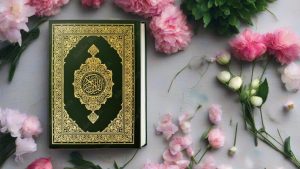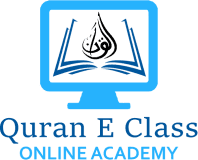Enhanced Quranic Insights for Muslims in the United States
February 19, 2024 2025-08-13 11:17Enhanced Quranic Insights for Muslims in the United States
Enhanced Quranic Insights for Muslims in the United States
In the melting pot of cultures that is the United States, the Muslim community is a vibrant tapestry of diverse traditions, ethnicities, and schools of thought. With the Quran as their guiding light, Muslims across the nation are seeking ways to enhance their understanding of this sacred text, striving for spiritual growth while navigating the complexities of American society.
The Quest for Knowledge
The pursuit of Quranic knowledge is a lifelong journey for Muslims. It begins with learning to read the Arabic script and often continues with in-depth studies of tafsir (exegesis) and hadith (sayings of the Prophet Muhammad). For American Muslims, this quest is facilitated by a wealth of resources, from local study groups and weekend schools to online courses and scholarly lectures, all aimed at fostering a deeper appreciation of the Quran’s message.
Language and Translation
One of the challenges faced by Muslims in the U.S. is the language barrier. While Arabic is the language of the Quran, many American Muslims are not native speakers. To bridge this gap, scholars and academics have produced numerous English translations and commentaries, each offering unique insights into the Quran’s verses. These works make the text accessible to a wider audience, allowing for a more inclusive understanding of its teachings.
Technological Advancements
Technology has played a significant role in democratizing access to Quranic knowledge. Mobile applications and websites offer interactive learning experiences, complete with audio recitations, translations, and tafsir. Social media platforms provide a space for discussion and exchange of ideas, connecting Muslims from all walks of life in their shared love for the Quran.
Cultural Relevance
For Quranic insights to truly resonate with American Muslims, they must be relevant to their lived experiences. Scholars and community leaders work to contextualize the teachings of the Quran, addressing contemporary issues such as social justice, environmental stewardship, and interfaith relations. This contextualization helps Muslims apply the Quran’s wisdom to the challenges and opportunities of life in the United States.
Youth Engagement
Engaging the youth is crucial for the continuity of Islamic traditions and the relevance of Quranic teachings. Youth programs, summer camps, and university Muslim student associations play a pivotal role in this engagement. By creating safe spaces for learning and discussion, these programs help young Muslims form a personal connection with the Quran, shaping their identity and values.
Community Outreach
The Muslim community in the U.S. is not insular; it actively participates in the broader societal discourse. Outreach programs and open mosque days invite non-Muslims to learn about the Quran and Islam, fostering a spirit of understanding and cooperation. Such initiatives dispel myths and build bridges between communities, showcasing the Quran’s message of peace and goodwill.
When Was the Quran Written?
The Quran’s compilation began during the life of the Prophet Muhammad, specifically in 610 CE, when he started receiving revelations from God through the angel Gabriel. These revelations continued until his death in 632 CE. Initially, the Quran was preserved through oral tradition, with many of Muhammad’s companions memorizing the entire text. The written collection of the Quran, as we have it today, was completed during the caliphate of Uthman ibn Affan, around 650 CE, to ensure its preservation and consistency across the growing Islamic empire.
Where Did the Quran Come From?
The Quran is believed by Muslims to be the word of God (Allah) as revealed to the Prophet Muhammad in the Arabic language. These revelations occurred over a period of 23 years and are considered by believers to be a miraculous occurrence, transcending human capabilities. The Quran’s message was delivered to Muhammad by the angel Gabriel, who acted as the divine messenger, conveying God’s words to guide humanity.
What Are the Sources of the Quran?
The primary source of the Quran is the series of revelations received by the Prophet Muhammad from God, which were witnessed and memorized by his companions. These companions, known as Sahabah, played a crucial role in preserving the Quran’s authenticity by recounting the verses and teaching them to others. The oral tradition was paramount in the early Islamic community, and it complemented the partial written records that existed at the time. After Muhammad’s death, these sources were meticulously compiled into a single, authoritative text.
What Is the Content of the Quran?
The Quran encompasses a comprehensive guide for life and spirituality, addressing themes such as monotheism, morality, guidance for personal conduct, and legal principles. It narrates stories of previous prophets and peoples, offers insights into the afterlife and the Day of Judgment, and provides directives for worship and social transactions. The surahs vary in length and context, some focusing on the Oneness of God and ethical living, while others legislate on matters of family, society, and state governance
FAQ’s
Q: What are ‘Enhanced Quranic Insights’?
A: Enhanced Quranic Insights refer to deeper understandings and interpretations of the Quran that resonate with contemporary life, particularly for Muslims living in the United States. These insights help bridge the gap between traditional Islamic teachings and modern American culture.
Q: Why is it important for American Muslims to have access to the Quran in English?
A: Access to the Quran in English allows American Muslims, many of whom may not be fluent in Arabic, to connect with their faith’s holy text more intimately. It ensures that they can understand and apply the Quran’s teachings to their daily lives.
Q: How do technology and social media contribute to Quranic insights?
A: Technology and social media platforms provide accessible, interactive ways for Muslims to learn about the Quran, engage in discussions, and share knowledge. They also offer tools for learning Arabic, recitation, and memorization.
Q: Can non-Muslims benefit from understanding Quranic insights?
A: Yes, non-Muslims can gain a better understanding of Islamic culture and beliefs by learning about Quranic insights. This knowledge can promote interfaith dialogue and mutual respect in multicultural societies like the United States.
Q: What role do educational initiatives play in providing Quranic insights?
A: Educational initiatives such as workshops, seminars, and study circles play a crucial role in providing structured learning environments where Muslims can explore the Quran’s teachings in depth and discuss their relevance to contemporary issues.
Q: How can American Muslims ensure that their understanding of the Quran remains relevant to their context?
A: American Muslims can ensure relevance by engaging with scholars and community leaders who contextualize the Quran’s teachings, participating in community discussions, and staying informed about contemporary interpretations and applications of Islamic principles
conclusion
In conclusion, enhanced Quranic insights for Muslims in the United States represent a journey of faith, intellect, and community. It’s a path marked by a quest for knowledge, understanding, and the harmonious blending of Islamic teachings with American values. This journey enriches not only the lives of American Muslims but also the broader society by promoting mutual respect and understanding









